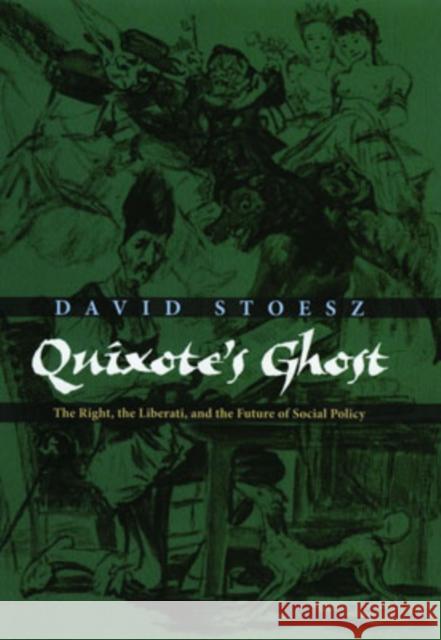Quixote's Ghost: The Right, the Liberati, and the Future of Social Policy » książka
Quixote's Ghost: The Right, the Liberati, and the Future of Social Policy
ISBN-13: 9780195181203 / Angielski / Twarda / 2005 / 264 str.
American social policy, writes David Stoesz, is currently experiencing an alarming paradigm shift. Quixote's Ghost, a provocative new analysis of the ideological fight for control of American social welfare policy, demonstrates how the Right pirated the pragmatism championed by the Left since the New Deal and what that means for the future of social policy. Stoesz's fascinating account documents how conservative think tanks arose to combat the dominance of liberal intellectualism in the university system, and by now have taken command of the "means of analysis," flooding Congress with proposals and effectively shifting American public philosophy from liberalism to conservatism. While the Right devoted enormous amounts of energy in reconstructing social policy, Stoesz argues that the American liberal-intellectual class-the Liberati-abandoned its original mission, defecting from the welfare state project to pursue a philosophical tangent, postmodernism, that vilified social policy and romanticized oppressed populations. Presenting case studies from welfare reform and children's services, he illustrates how both the Right and the Left have shortchanged American social policy. In the process, he proposes radical pragmatism as the solution to counter the dominance of an emerging welfare-industrial complex and revive a Progressive orientation to social policy. Only through citizen empowerment, social mobility, and government restructuring, Stoesz argues, can we effectively craft a new approach to social policy that meets the requirements of the 21st century and transcends the impasse between the Left and the Right. Quixote's Ghost, framed by the metaphor of a Romantic Left whose actions-like Don Quixote's obsession with chivalry-are out of synch with the present reality, will be of immense interest to students and academics alike. As one of the few books to chart this radical shift in social policy and its implications on the ground, it will be sure to challenge both the Right and the Left to craft a new approach to thinking about American social policy.











